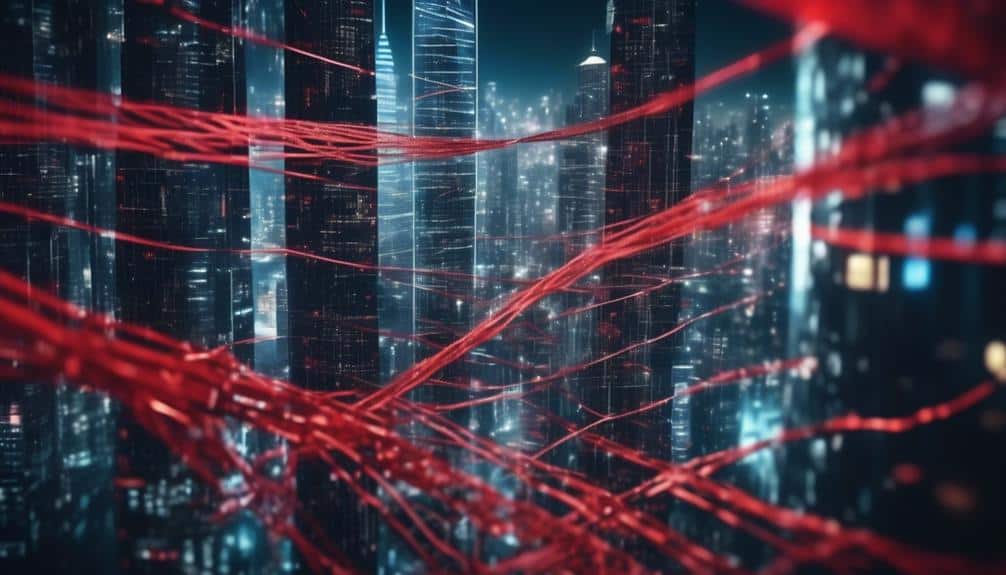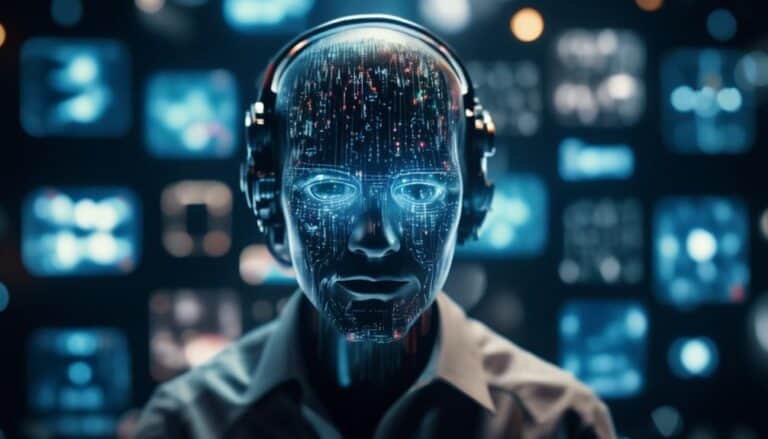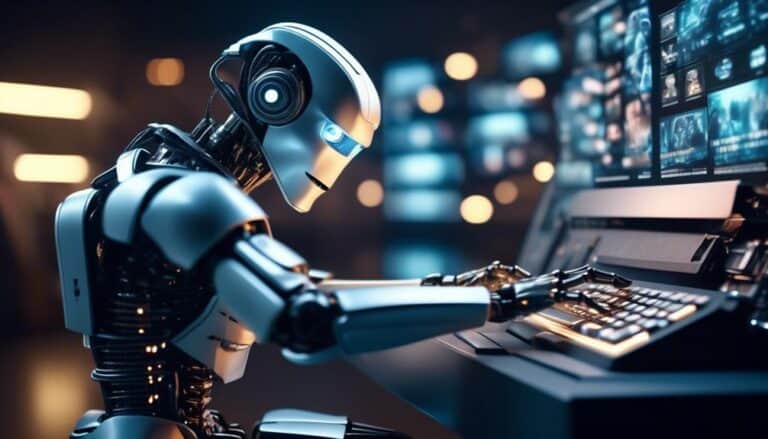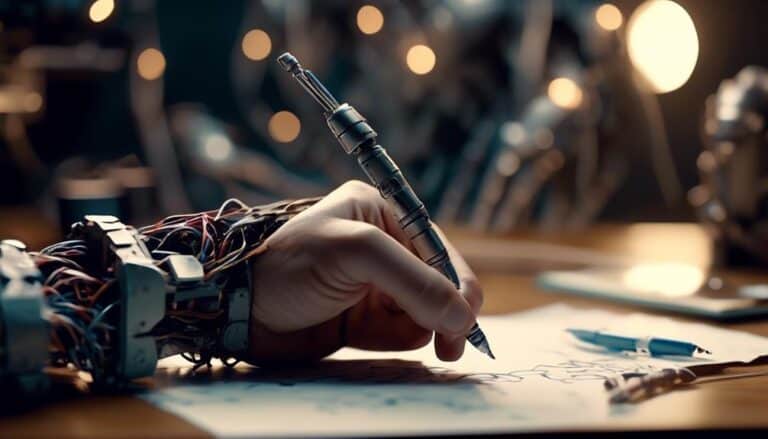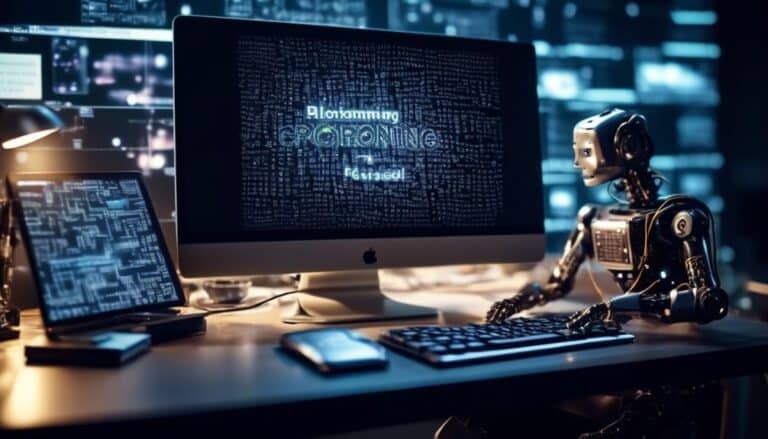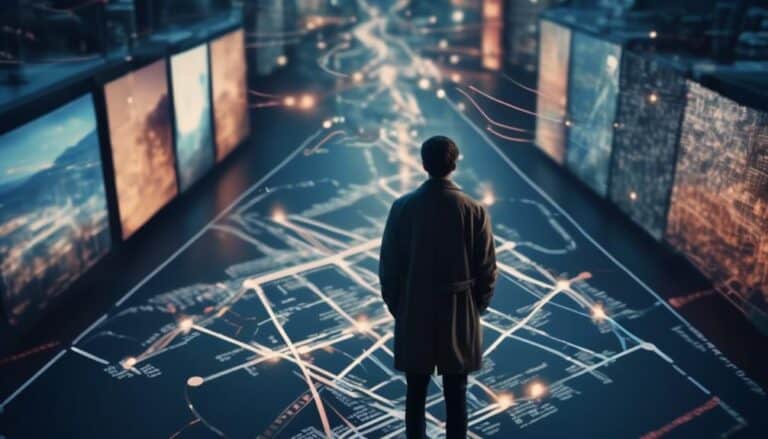Navigating the Legal Landscape: Copyright Concerns in AI-Generated Content
As you venture into the realm of AI-generated content, the intricate web of copyright concerns may appear daunting at first glance.
In a landscape where artificial intelligence is increasingly shaping the creative output, questions surrounding ownership, protection, and infringement lurk like shadows in the digital expanse.
The interplay between evolving technologies and established legal frameworks can often blur the lines of accountability and intellectual property rights, prompting a closer examination of the intricate dance between AI ingenuity and copyright law.
Key Takeaways
- Ownership rights in AI-generated content are complex and require clear policies to avoid disputes.
- Understanding fair use is crucial in AI content creation to navigate copyright protection laws effectively.
- Regular monitoring and legal review are essential to detect and address infringement risks promptly in AI content.
- Resolving ownership issues and adapting IP frameworks are key challenges in addressing legal complexities in AI-generated works.
Understanding AI-generated Content Ownership
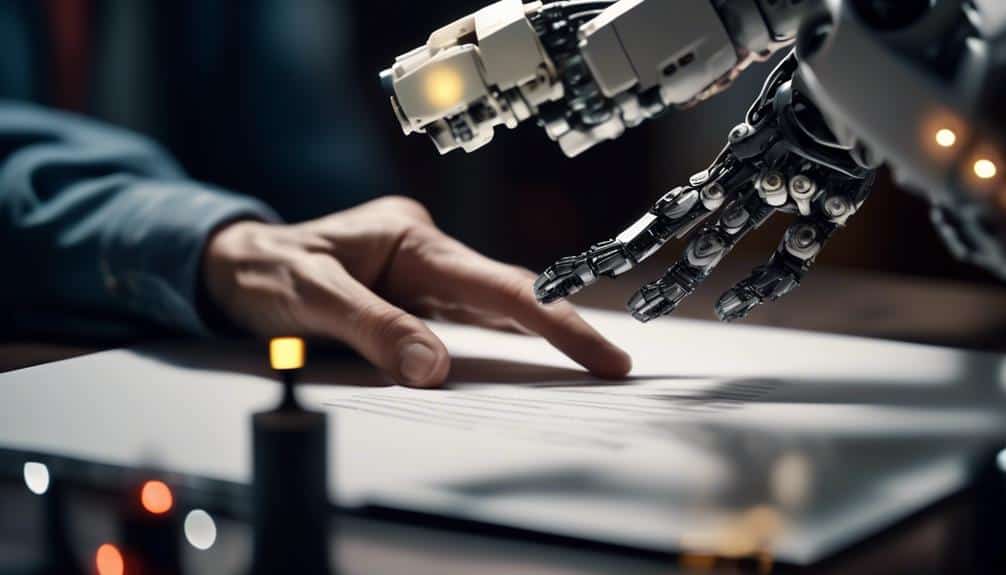
When delving into the realm of AI-generated content ownership, it's crucial to understand the complexities surrounding intellectual property rights. Ownership rights in AI-generated content raise intricate legal questions due to the involvement of artificial intelligence in the creative process. One of the primary concerns is determining who owns the content generated by AI systems. In traditional content creation, the creator typically holds the copyright. However, in the case of AI-generated content, identifying the creator becomes challenging, leading to uncertainties regarding ownership.
Licensing agreements play a vital role in clarifying ownership rights in AI-generated content. These agreements define the terms under which the content can be used, distributed, and modified. In the context of AI-generated content, licensing agreements may need to address the unique circumstances surrounding authorship and ownership. Clear and comprehensive licensing agreements can help mitigate disputes over ownership rights and provide clarity on how the content can be utilized within the bounds of intellectual property laws. Understanding and addressing ownership rights through licensing agreements are essential steps in navigating the legal complexities of AI-generated content.
Copyright Protection for AI Creations
Copyright protection for AI creations involves navigating the complexities of intellectual property laws to ensure proper recognition and ownership of the generated content. When it comes to ownership rights, the key question is: who owns the copyright for content created by AI? Generally, the creator of the AI system is considered the owner of the copyright. However, if the AI was created by an employee within the scope of their employment, the employer may own the copyright. It's crucial for organizations to establish clear policies regarding ownership of AI-generated content to avoid disputes.
Fair use also plays a significant role in copyright protection for AI creations. Fair use allows for the limited use of copyrighted material without permission for purposes such as criticism, commentary, news reporting, teaching, scholarship, or research. However, determining what constitutes fair use in the context of AI-generated content can be challenging. Organizations must carefully assess whether their use of AI-generated materials falls within the boundaries of fair use to avoid copyright infringement claims. Understanding ownership rights and fair use is essential for effectively protecting AI creations under copyright law.
Infringement Risks in AI Content
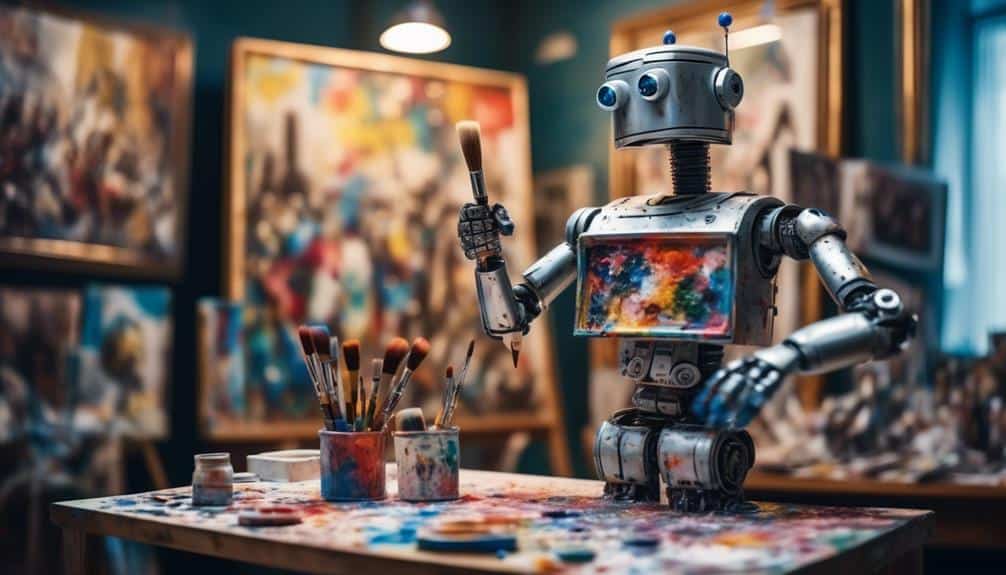
In the realm of AI-generated content, vigilance against infringement risks is paramount for safeguarding intellectual property rights and minimizing legal liabilities. As AI technologies evolve, the potential for inadvertent infringement also increases.
Here are key considerations to mitigate AI infringement and ensure clear content ownership:
- Algorithmic Transparency: Understanding the algorithms utilized in AI systems can help identify potential sources of infringement.
- Regular Monitoring: Consistently monitoring AI-generated content can help detect any instances of infringement promptly.
- Legal Review: Seeking legal counsel to review AI content creation processes can provide insights into potential infringement risks.
- Data Compliance: Ensuring that the data used to train AI models is obtained and utilized legally is crucial for avoiding infringement issues.
- Documentation: Maintaining detailed records of AI content creation, including sources of data and algorithms used, can aid in demonstrating ownership and compliance.
Legal Challenges in AI-generated Works
To navigate the landscape of AI-generated content effectively, it's imperative to address the legal challenges that arise in works produced through artificial intelligence systems. One significant legal challenge in AI-generated works pertains to ownership issues. Determining the rightful owner of content created by AI can be complex. Traditional copyright laws typically attribute ownership to human creators, raising questions about the ownership of works generated by autonomous AI systems. Resolving these ownership issues requires a reevaluation of existing intellectual property frameworks to accommodate the unique characteristics of AI-generated content.
Another legal challenge involves navigating fair use exceptions in AI-generated works. Fair use exceptions allow for the use of copyrighted material without permission under specific circumstances, such as criticism, commentary, or parody. However, applying fair use principles to AI-generated content adds another layer of complexity. The fluid nature of fair use in the context of AI-generated works requires a nuanced understanding of how these exceptions apply to content created by machines. Addressing these legal challenges will be crucial in establishing a clear framework for the protection and use of AI-generated works in the future.
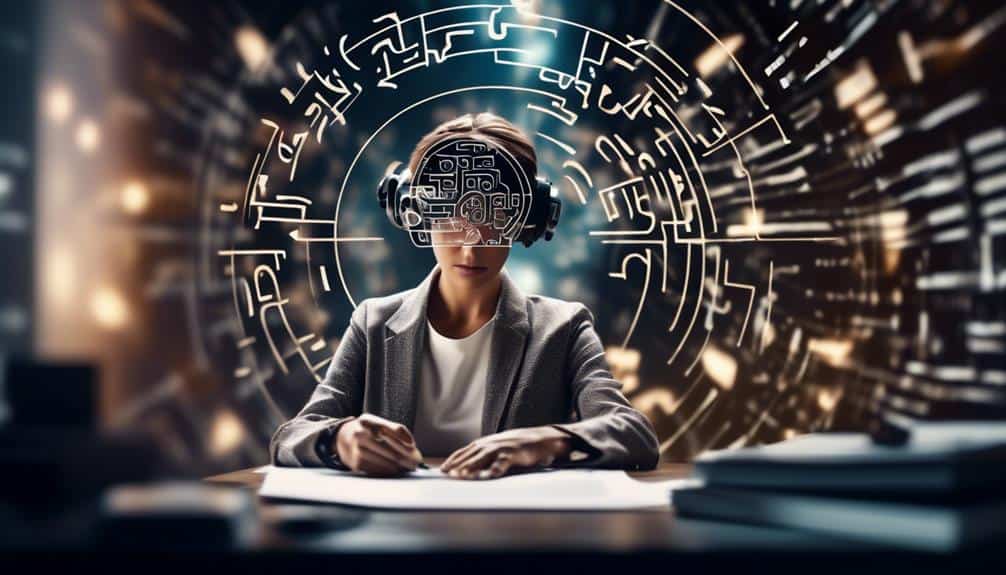
Navigating the intricate web of copyright laws surrounding AI-generated content requires a deep understanding of intellectual property frameworks and their adaptation to the unique nature of machine-generated works. In the realm of AI, ownership rights and fair use are particularly crucial aspects to navigate. Here are key points to consider:
- Ownership Rights: Determining who owns the copyright to AI-generated content can be complex. Is it the creator of the AI, the person who trained the AI, or the AI itself?
- Fair Use: Understanding the concept of fair use in the context of AI-generated content is essential. What constitutes fair use when AI is involved in content creation?
- Legal Precedents: Stay informed about recent legal cases that have addressed copyright issues related to AI-generated works.
- Licensing Agreements: Explore the use of licensing agreements to clarify the rights and responsibilities of parties involved in creating or using AI-generated content.
- International Considerations: Be aware of how copyright laws regarding AI-generated content vary across different jurisdictions to ensure compliance on a global scale.
Frequently Asked Questions
Can AI-Generated Content Be Considered as Intellectual Property Owned by the AI Creator or Developer?
When it comes to AI-generated content, ownership rights can be a complex issue. Ethical implications arise regarding whether the AI creator or developer should be considered the owner of the intellectual property, sparking debates in the legal landscape.
How Can AI Creators Ensure Their AI-Generated Content Is Adequately Protected Under Copyright Laws?
To ensure protection for your AI-generated content, it's crucial to understand copyright ownership. Register your work with appropriate authorities, clearly attribute authorship, and consider licensing agreements. Stay informed about evolving laws to safeguard your creations effectively.
What Are the Potential Legal Consequences for Using Ai-Generated Content Without Proper Authorization or Licensing?
If you use AI-generated content without proper authorization or licensing, you could face serious legal implications. Copyright protection is crucial for AI-generated works. Make sure you have the right permissions to avoid unauthorized use.
Are There Any Specific Legal Challenges Unique to Ai-Generated Works That Creators Should Be Aware Of?
When creating AI-generated content, be mindful of ethical implications and ownership rights. Unique legal challenges may arise regarding the identification of creators, determining authorship, and establishing copyright ownership, requiring careful legal navigation.
To navigate the complex copyright laws surrounding AI-generated content effectively, creators must ensure compliance by understanding licensing agreements and copyright ownership. Mitigating risks involves consulting legal experts, implementing clear usage policies, and staying informed on evolving regulations.
Conclusion
In conclusion, as AI technology continues to evolve, navigating the legal landscape of copyright concerns in AI-generated content becomes increasingly complex. Understanding ownership, protection, infringement risks, and legal challenges is essential for creators, users, and regulators alike.
To effectively navigate copyright laws in AI, staying informed and seeking legal counsel is crucial to ensure compliance and protection of intellectual property rights in this rapidly advancing digital age.
